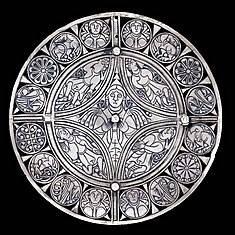Old English is the language which was spoken in England in the early Middle Ages (from the mid-5th century until the Norman conquest of 1066). The corpus of Old English (or Anglo-Saxon) texts is not insignificant and is preserved in a large number of manuscripts.
The best-known examples of Anglo-Saxon literature are poetic works (Beowulf, Deor, Widsith etc.). However, prosaic works (both Christian and secular) are no less precious and important than the poetic ones. They include historical chronicles, homilies, lives of saints, translations of religious and philosophic compositions, legal texts, and medical works. All these texts provide a unique insight into the dynamic life of the Anglo-Saxon society.
We will read and analyse such texts as (1) entries from the Anglo-Saxon Chronicle, (2) chapters from the story of Apollonius of Tyre, (3) medical texts from Bald's Leechbook, (4) selected passages from Wessex Gospels, (5) chapters from Ælfric’s Lives of Saints, and (6) paragraphs from the law codes of Ine and Offa.
No prior knowledge of Old English is required. Basic Old English grammar necessary for understanding of the texts will be introduced during the course.

- Teacher: Mariia Flaksman